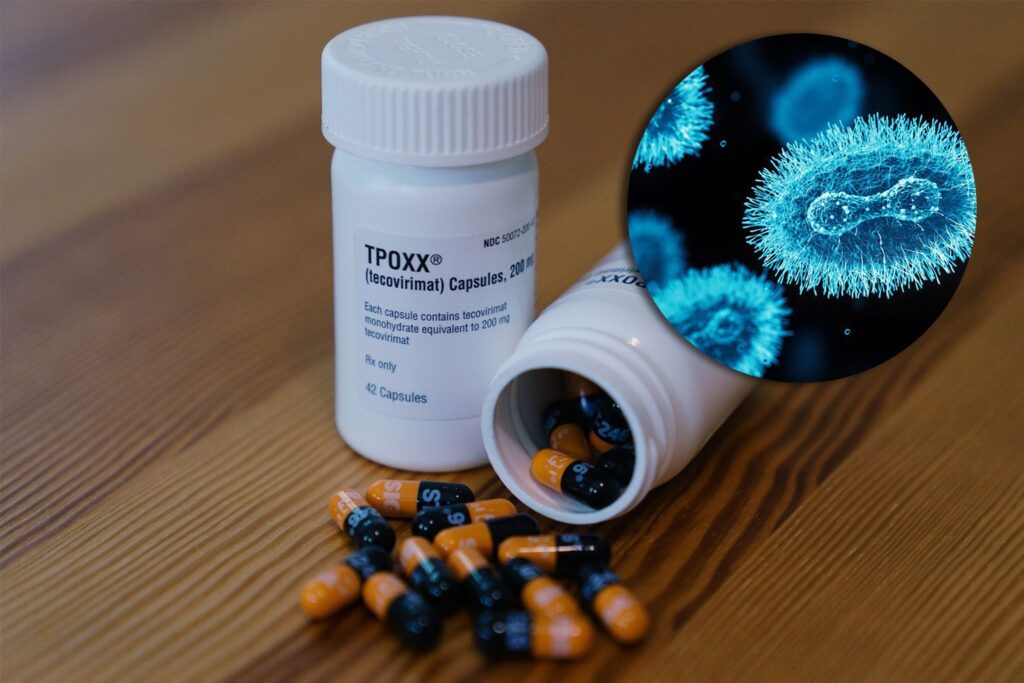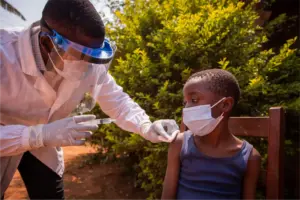
Recent clinical studies funded by the National Institutes of Health (NIH) have shed important new light onmpox treatment, showing that the antiviral medication tecovirimat, taken alone, does not hasten the healing of mpox lesions or offer improved pain relief. Conducted over several nations, the trial was stopped in late 2024 following an interim analysis revealing tecovirimat monotherapy was useless. Shared during the 2025 Conference on Retroviruses and Opportunistic Infections (CROI) in San Francisco were the specific results.
Emphasizing the significance of the study, Dr. Jeanne Marrazzo, director of the NIH’s National Institute of Allergy and Infectious Diseases (NIAID), said that it has enhanced knowledge of mpox and possible therapy options. She also thanked the researchers and subjects who helped to produce this important study on an illness still little known.
There are two main strains to the viral illness mpox, which is spread by intimate contact: clades I and II. A clade II variant drove the worldwide mpox outbreak in 2022; although instances have since dropped, the virus still circulates at low levels. A clade I epidemic in Central and East Africa was declared a public health emergency in 2024. Though cases connected to travel have been found in the United States, the general risk is still minimal. Those with compromised immune systems, pre-existing skin problems, youngsters, and pregnant women still run more risk, though, for severe MPX infections.
Initiated in September 2022 in response to the epidemic by the US government, the Study of Tecovirimat for Mpox (STOMP) As of right now, no recognized treatment exists formpox in the United States. Originally licensed by the Food and Drug Administration (FDA) for treating smallpox, a more severe but closely related virus, Tecovirimat, sometimes known as TPOXX, was Apart from a complimentary trial named PALM007 carried out in the Democratic Republic of the Congo, the medication has not been formally evaluated in humans for mpox until STOMP. PALM007 produced results consistent with STOMP.
Enrolled in Argentina, Brazil, Japan, Mexico, Peru, Thailand, and the United States including Puerto Rico, STOMP was an international randomized controlled experiment. Random assignment was used to assign participants who had symptoms for less than 14 days either tecovirimat or a placebo; neither the patients nor the investigators knew which treatment they got. To guarantee they got tecovirimat instead of a placebo, particular groups—including children, pregnant women, those with severe mpox, or those with low immune systems—were randomized to an open-label component of the study.
The study aimed to find whether a 14-day tecovirimat course would cut the time needed for lesions to heal and more successfully lower pain than a placebo. Before starting the trial, participants had an average of nine lesions and eight days of median time experiencing mpox symptoms. Of the participants, one third claimed extreme pain.
Day 29: About 83% of those getting tecovirimat had recovered, compared to 84% in the placebo group—not significantly different. Among individuals in great pain, both groups saw almost exactly the same drop in pain ratings. Furthermore, although more members of the tecovirimat group initially had undetectable quantities of the virus’s DNA, the difference between the two groups reduced with time and finally proved to be statistically negligible. Side effects also were same in both groups.
Participants in the open-label arm had a separate study meant to pinpoint elements affecting mpox recovery. Results indicated that younger people and those without HIV, or with well controlled HIV, tended to recover faster. These variances, though, were not statistically significant.
Chief of the Division of Infectious Diseases and Global Public Health at the University of California, San Diego, Dr. Timothy Wilkin underlined the significance of the study and said that STOMP offers clear proof that tecovirimat monotherapy does not offer therapeutic advantages for treating mpox. Furthermore emphasized by the study, he said, is the necessity of more investigation to pinpoint elements affecting the course of illness and recovery.
Under the NIH-funded ACTG network—which focuses in HIV and other infectious disease research—the STOMP experiment was carried out. Siga Technologies, Inc. provided tezovirimat. The results should be written up in a scientific publication not too far off.
Visit ClinicalTrials.gov with the identifier NCT0553498 for further information on the trial. The NIAID website offers further details on infectious diseases research.








